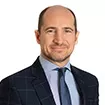In a particularly "harsh" decision, the French Supreme Court just upheld the 29 March 2017 decision of the Paris Court of Appeal which imposed record fines on healthcare companies in the dental sector and their company officer (€75,000 fine for the latter). All the defendants had appealed the Court of Appeal's decision.
It is rare for the French Supreme Court to rule on the application of the "anti-kickback" statute and this ruling is, in our opinion, a landmark case.
Moreover, and according to our analysis, the conclusions of the French Supreme Court can be transposed to any type of producer or distributor of directly or indirectly reimbursed health products, as well as to healthcare providers.
These conclusions also clarify the conditions for the application of the current "anti-kickback" statute, while healthcare companies are waiting to find out the conditions under which they must apply, as from 1 July 2018, the "new anti-kickback statute".
The French Supreme Court confirms that the reimbursement of healthcare products, even when indirect, results in bringing the company marketing such products, or offering care services, within the scope of application of the "anti-kickback" statute.
Indeed, the French Supreme Court states that this law is applicable "to companies which manufacture and/or market products which are not directly reimbursed by the social security but which are used for the realization of services supported by the social security".
It is further inferred from the French Supreme Court's decision that normal employment relations, allowing for exceptions from the application of the "anti-kickback" statute, must be strictly interpreted and that the threshold of €30, below which an advantage may be excluded from the "anti-kickback" statute, is indeed the one that must be used.
With reference to sanctions, the French Supreme Court noted that the fines imposed by the Court of Appeal are proportionate to the gravity of the facts and the profit obtained by the companies. These penalties may seem significant (€75,000 for the corporate officer, €135,000 in total for the companies), but they are considerably lower than the penalties provided for by the new provisions of the "anti-kickback" statute (€150,000 fine and this amount may be increased to 50% of the expenses incurred for the practice constituting the offence).
Thus, with regard to the company officer, the French Supreme Court stated that he was "at the head of a real commercial empire in the dental field" before adding that the offences alleged against him "are multiple, serious, have lasted for several years, and, given the financial importance of the benefits provided and the arrangements put in place, are part of a strategy aimed at corrupting the dental sector".
Finally, it should be noted that the decision was made not on the basis of the new provisions of the "anti-kickback" statute resulting from the order of 19 January 2017, as the Paris Court of Appeal had partially done, but on the basis of the current provisions of Article L. 4113-6 of the French Public Health Code.
The content of this article is intended to provide a general guide to the subject matter. Specialist advice should be sought about your specific circumstances.


